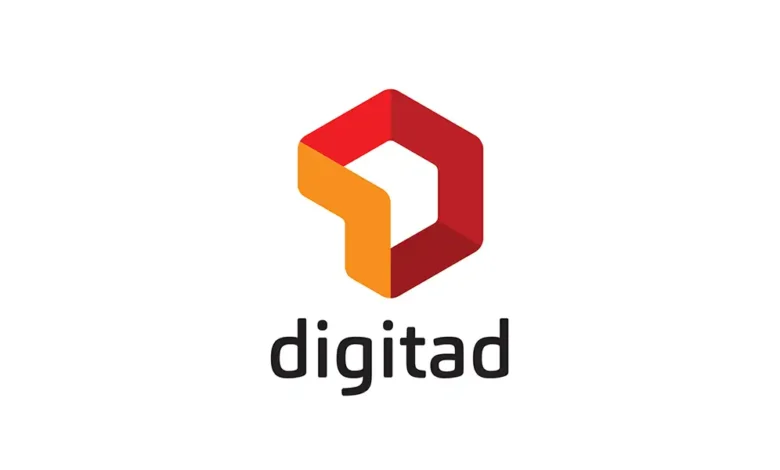Digitad: Unveiling the Future of Digital Advertising Strategies

In today’s dynamic digital landscape, mastering Digitad—digital advertising strategies—is no longer optional but essential for businesses striving to achieve sustainable growth and competitive advantage. Digitad encompasses a diverse range of techniques and platforms designed to engage, attract, and convert target audiences through digital channels such as social media, search engines, websites, and mobile applications. This comprehensive guide explores the fundamental components, advanced tactics, ethical considerations, and future trends of Digitad, equipping you with the knowledge and strategies to elevate your digital advertising efforts.
Introduction to Digitad
Digitad, derived from digital advertising, refers to the strategic use of online channels to promote products, services, or brands to targeted audiences. Unlike traditional advertising methods, Digitad offers unparalleled precision in audience targeting and measurable results. The rise of digital consumption habits among consumers has accelerated the importance of Digitad, making it a cornerstone of modern marketing strategies for businesses of all sizes.
The Evolution and Importance of Digitad
The evolution of Digitad parallels the rapid advancements in technology and shifts in consumer behavior. As more consumers spend significant time online, businesses have adapted by reallocating marketing budgets towards digital channels. This shift not only allows for more precise targeting based on demographics, interests, and behaviors but also provides real-time insights into campaign performance, enabling marketers to optimize strategies on the fly.
Key Components of a Successful Digitad Strategy
A successful Digitad strategy hinges on several key components that work synergistically to maximize reach, engagement, and conversion rates:
1. Understanding Target Audience and Market Segmentation
Central to any Digitad strategy is a deep understanding of your target audience. By conducting thorough market research and leveraging data analytics, businesses can segment their audience based on factors such as demographics, psychographics, and online behaviors. This segmentation allows for personalized messaging and tailored advertising campaigns that resonate more effectively with different audience segments.
2. Choosing the Right Digital Advertising Platforms
With an array of digital advertising platforms available, selecting the right ones for your business goals is crucial. Platforms like Google Ads, Facebook Ads, LinkedIn Ads, and Instagram Ads offer unique advantages depending on your target audience and objectives. For instance, Google Ads excels in capturing intent-driven traffic through search engine marketing (SEM), while social media platforms like Facebook and Instagram are ideal for building brand awareness and fostering community engagement.
3. Crafting Compelling Ad Copies and Visuals
The effectiveness of a Digitad campaign often hinges on the quality of ad creatives. Compelling ad copies should be concise, clear, and compelling, capturing attention and conveying a compelling value proposition. Visual elements such as images, videos, and infographics should align with brand identity and resonate with the target audience’s preferences and emotions.
4. Implementing Effective Call-to-Actions (CTAs) and Landing Pages
To drive conversions, Digitad campaigns must include clear and compelling call-to-actions (CTAs) that prompt users to take desired actions, such as making a purchase, signing up for a newsletter, or downloading a resource. Optimized landing pages that align with the ad’s messaging and provide a seamless user experience are critical in maximizing conversion rates and reducing bounce rates.
Advanced Techniques in Digitad
As businesses mature in their Digitad journey, adopting advanced techniques can further enhance campaign effectiveness and ROI:
1. Utilizing Data Analytics and Insights for Optimization
Data-driven decision-making is at the heart of successful Digitad campaigns. By analyzing key performance indicators (KPIs) such as click-through rates (CTR), conversion rates, cost per acquisition (CPA), and return on ad spend (ROAS), marketers can identify trends, uncover insights, and optimize campaigns for maximum impact. Tools like Google Analytics, Facebook Pixel, and CRM platforms provide invaluable data insights that inform strategic decisions and drive continuous improvement.
2. A/B Testing and Continuous Improvement Strategies
A/B testing involves experimenting with different variations of ad creatives, CTAs, landing pages, and targeting parameters to identify which combinations yield the best results. By testing elements such as headline variations, image choices, ad formats, and audience segments, marketers can iterate on successful strategies and refine campaigns based on empirical data. Continuous improvement is essential in staying ahead of competitors and adapting to evolving market trends and consumer preferences.
3. Integrating SEO with Digitad Efforts
While SEO (Search Engine Optimization) primarily focuses on organic search visibility, integrating SEO principles into Digitad campaigns can amplify results. Optimizing ad content with relevant keywords, enhancing landing page SEO elements, and improving website load speeds contribute to higher quality scores, lower CPCs (Cost-Per-Click), and improved ad rankings. This synergy between SEO and Digitad ensures a cohesive digital marketing strategy that maximizes both paid and organic search visibility.
4. Harnessing the Power of Programmatic Advertising
Programmatic advertising leverages artificial intelligence (AI) and machine learning algorithms to automate the buying and placement of digital ads in real-time. By analyzing vast amounts of data and targeting parameters, programmatic advertising platforms optimize ad delivery to reach the most relevant audiences at the right time and on the most cost-effective channels. This data-driven approach improves ad efficiency, enhances targeting precision, and frees up marketers to focus on strategy and creativity.
Compliance and Ethical Considerations in Digitad
In an era of heightened data privacy concerns and ethical scrutiny, businesses must prioritize compliance and ethical considerations in their Digitad strategies:
1. Adherence to GDPR and Privacy Regulations
The General Data Protection Regulation (GDPR) and other privacy regulations mandate strict guidelines for collecting, storing, and processing user data. Businesses operating within the EU or targeting EU citizens must obtain explicit consent for data collection, ensure data security, and provide users with transparency regarding how their data is used. Failure to comply with GDPR can result in hefty fines and damage to brand reputation.
2. Best Practices in Transparent Advertising
Transparent advertising practices build trust and credibility with consumers. Marketers should clearly disclose sponsored content, promotions, and affiliate relationships to ensure transparency and avoid misleading consumers. Authenticity in advertising fosters positive brand perception and encourages long-term customer loyalty.
3. Addressing Ethical Concerns in Digital Marketing
Ethical concerns in Digitad encompass issues such as deceptive advertising practices, targeting vulnerable demographics, and promoting harmful products or services. Marketers should uphold ethical standards by adhering to advertising codes of conduct, avoiding exploitative tactics, and prioritizing consumer welfare in their campaigns. Ethical advertising not only aligns with corporate social responsibility (CSR) but also enhances brand reputation and fosters a positive brand image among consumers.
Conclusion
Mastering Digitad requires a multifaceted approach that integrates strategic planning, creative execution, data-driven insights, and ethical considerations. By understanding the key components of a successful Digitad strategy and adopting advanced techniques such as data analytics, A/B testing, SEO integration, and programmatic advertising, businesses can enhance their digital advertising effectiveness and achieve measurable results. Compliance with GDPR and ethical advertising practices ensures responsible marketing conduct while maintaining consumer trust and loyalty in an increasingly digital world.
As technology continues to evolve and consumer behaviors evolve, staying agile and proactive in your Digitad approach will be crucial to staying ahead of the competition and driving sustainable growth. By continuously optimizing campaigns, leveraging emerging technologies, and prioritizing ethical standards, businesses can navigate the complexities of Digitad with confidence and achieve long-term success in the digital marketplace.





